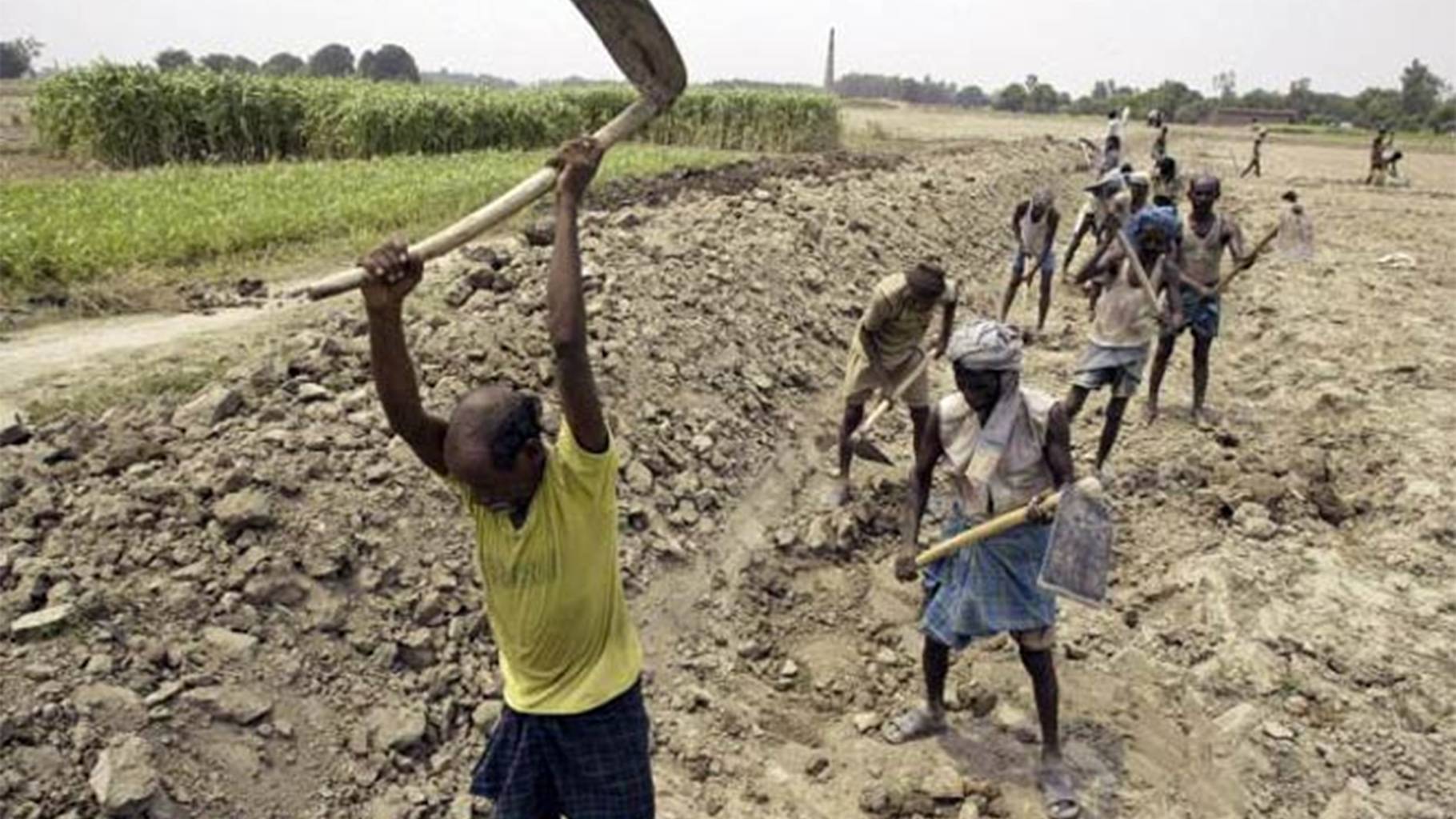
States to be put on anti-corruption leash for MGNREGA fund dues
States will need to first put in place a slew of anti-corruption measures to get their MGNREGA pending dues even as wage payment delay has put rural workers on a warpath.

States will need to first put in place a slew of anti-corruption measures to get their MGNREGA pending dues even as wage payment delay has put rural workers on a warpath.
The rural development ministry in a recent directive to the state governments asked them to send a compliance report on five anti-corruption measures they were supposed to take to plug misuse of the rural job funds.
Union rural development minister Giriraj Singh will evaluate the report next month before taking a call on request of state governments to clear the pending dues, the directive said.
As on September 11, states are to get 4,828. 65 crore from the Centre. West Bengal’s due alone, according to the ministry’s figure, is ₹1,535.47 crore.
On the same day of the last fiscal, the outstanding dues of the states were just ₹531.15 crore, said a state government official pointing out how the Centre has choked the fund for the scheme.
Due to fund crunch only ₹49,328.14 crore has been spent by states under the scheme so far in the current fiscal. During the same period of the last fiscal, the expenditure was ₹1,09,710.50 crore.
The lack of funds has put the existence of the scheme at risk, alleged NREGA Sangharsh Morcha, a national platform of workers’ collectives, trade unions, organisations and individuals engaged in public action on the scheme.
Also read: MGNREGA: Allegations of corruption, threats, TMC interference in Bengal
The Morcha organised a three-day protest programme of MGNREGA job card holders from 15 states at New Delhi’s Jantar Mantar last month demanding adequate funding for the scheme.
“The NREGA is under attack by the government. Consistently decreasing budgetary allocations, wage payments delayed for months, negligible compensation paid for delays, and woefully low wages plague NREGA. These issues are widespread across the country,” the morcha had said in a press statement.
The Centre has tightened the purse strings for the scheme alleging misuse of funds by many states. Special teams of the ministry reportedly found several cases of leakage after field visit and surveys in 90 districts of 11 states, including West Bengal.
To check irregularities, the ministry is giving emphasis on social audit, appointment of district-level ombudsperson for grievance redressal, real-time attendance of workers, keeping tab on field visit of area officers through monitoring app and regular supervision of work progress by public representatives through a common Whatsapp Group to be created at gram panchayat level by panchayat secretary.
Most states, however, have failed to implement the anti-corruption measures. The Federal had reported in March this year how the rural job scheme had become a major source of corruption due to the failure of the state governments to comply with the Centre’s guidelines to plug corruption.
“There has been lack of transparency in every stage of the scheme from job allocation to payment disbursement,” the ministry reportedly told the state governments while linking the implementation of anti-corruption measures with fund release.
Also read: Why Stalin should address corruption first before raising MGNREGA work days
Except for Andhra Pradesh, Assam, Bihar, Chhattisgarh, Karnataka and Odisha, states have not yet appointed ombudsperson in most of their districts.
After the threat of fund-freeze, the West Bengal government this month set the ball rolling for the appointment of ombudsperson. The government on Monday appointed ombudspersons in 23 districts of the state, said an official of the state panchayat and rural development department.
Similarly, most states are not complying with social audit norms mandated by the MGNREGA Act, which says every gram panchayat should conduct an audit at least once every six months in a financial year.
But no audit has been done in any of the gram panchayats in Arunachal Pradesh, Bihar, Jharkhand, Kerala, Maharashtra, Odisha, Rajasthan, Sikkim, Tamil Nadu and West Bengal in the 2021-22 financial year, according to the ministry’s data.
The states are also not showing much interest in creating WhatsApp groups for exchange of information regarding the scheme among officials and public representatives. Panchayat pradhans, district magistrates, other panchayat and district officials involved with the scheme, legislators and parliamentarians are to be the members of the group.
In West Bengal, out of 33,450 gram panchayats where the MGNREGA schemes are being implemented, only in about 860 panchayats, the group has been created.
Also read: MGNREGA: Pilferage continues as govts ignore vigilance processes
The compliance records of most of the other states are equally dismal, sources said. Out of over 59,000 panchayats in Uttar Pradesh, only 28,930 panchayats created the group.
In May 2022, the Centre launched the National Mobile Monitoring System (NMMS) app to ensure “more transparency” in implementation of the scheme. The app requires time-stamped and geo-tagged photographs of workers in order to verify real-time attendance.
The system, however, failed to take off in many states due to some practical problems like poor internet connectivity in rural areas and non-possession of smartphones, needed to record attendance, by most rural workers, pointed out the P&RD department official.


